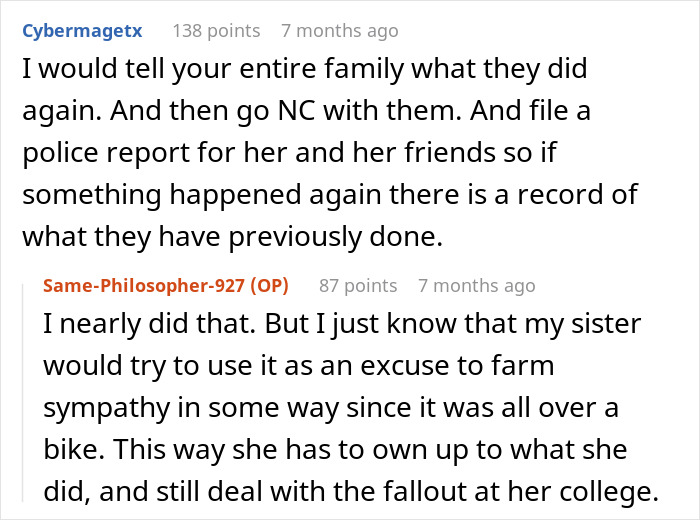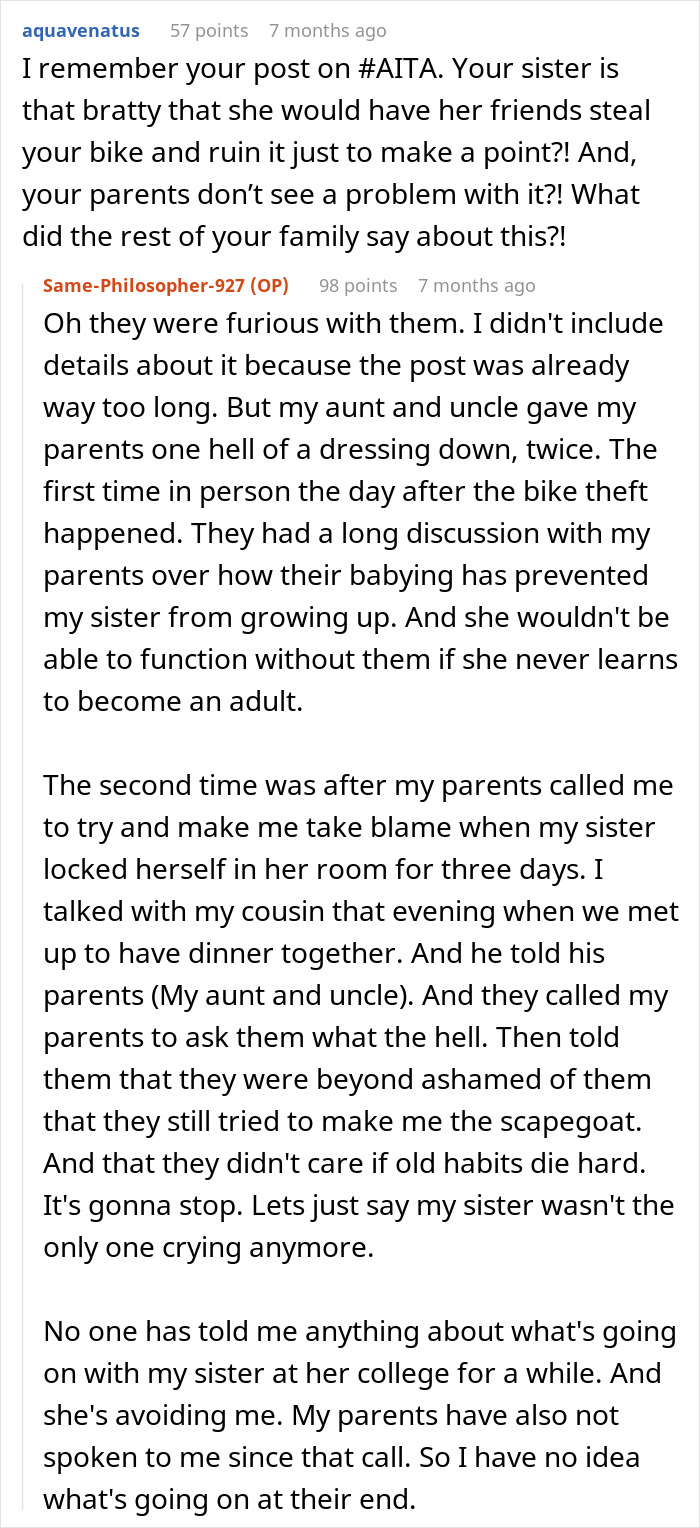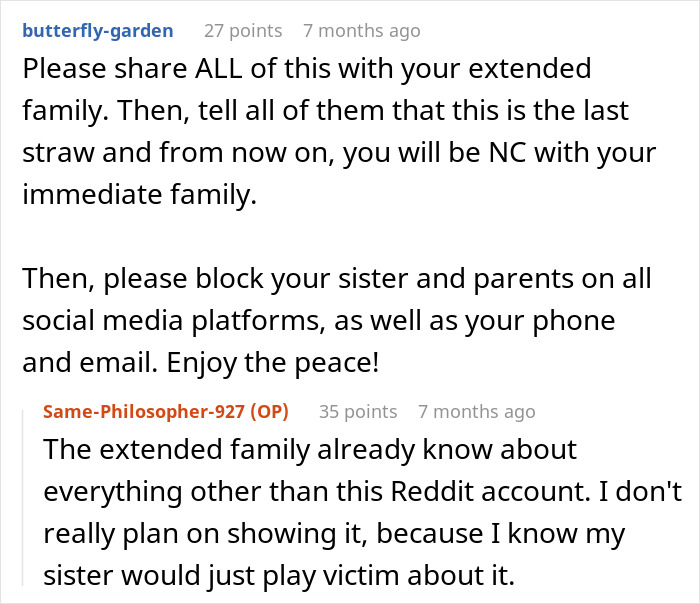Some siblings get along with each other better than with anyone else. For others, this relationship is a bit (or way) more complicated. Especially in the families where one kid is the so-called golden child — being favored by their parents over their sibling.
Often, this leads said child to grow up entitled, which is exactly what happened in today’s story. All her life, the OP’s sister was always favored by her parents, no matter how wrong she was. Then, when one time, they weren’t on her side, she came up with a revenge plan, which drove everyone else away from her.
It’s no secret that having a golden child in a family sometimes leads to awkward and even hurtful situations

Image credits: Drazen Zigic / Freepik (not the actual photo)
This man’s workplace is near a hospital, so often he goes to its cafeteria for lunch
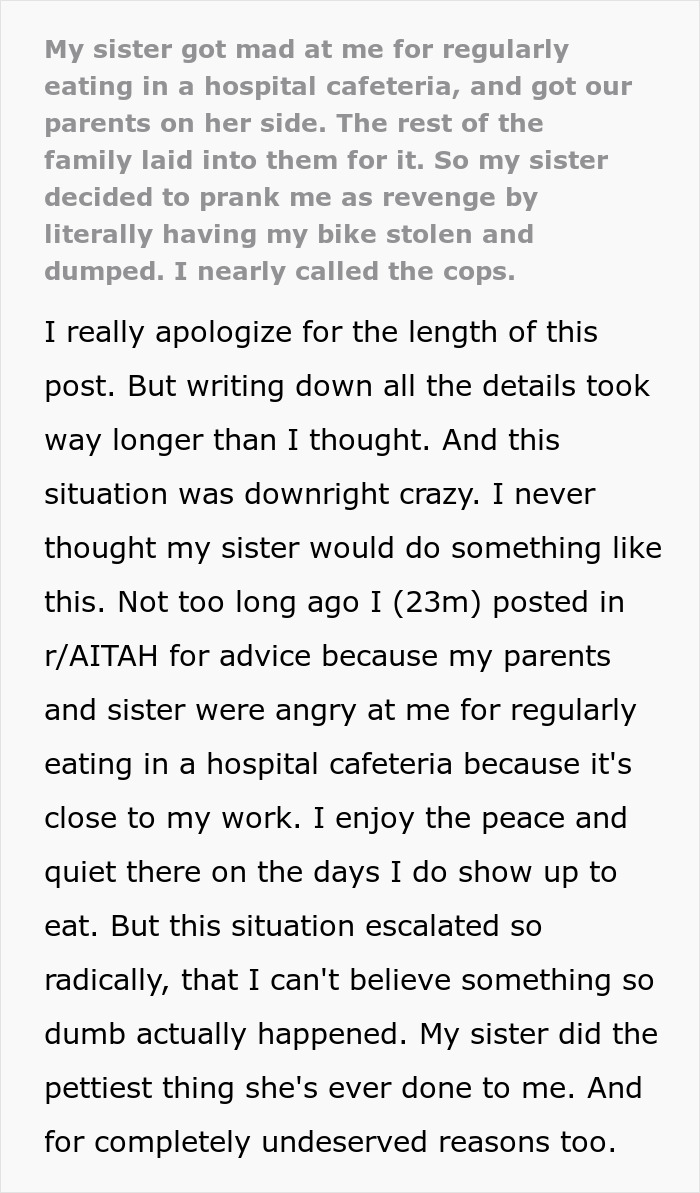


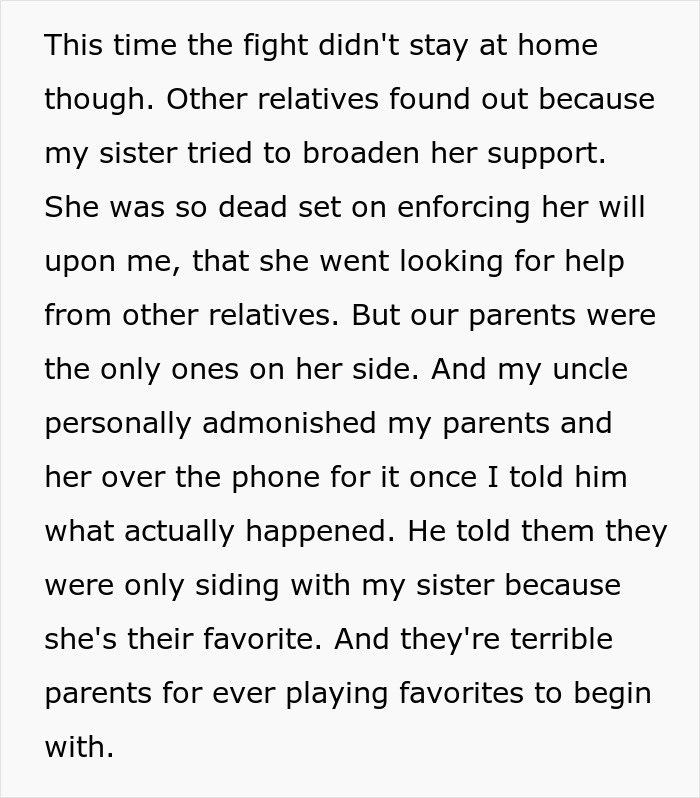

Image credits: Freepik / Freepik (not the actual photo)
One day, his sister found out about it and basically declared a war (involving their parents and relatives) to stop him from doing it, as she thought it wasn’t normal





Image credits: Freepik / Freepik (not the actual photo)
Yet, no one was on her side and even their parents, who initially supported her, changed her minds, forcing her to apologize

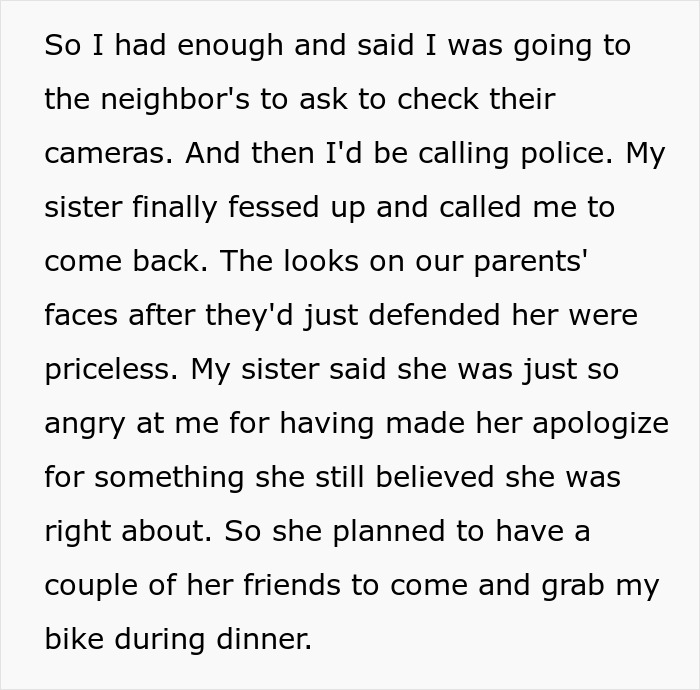
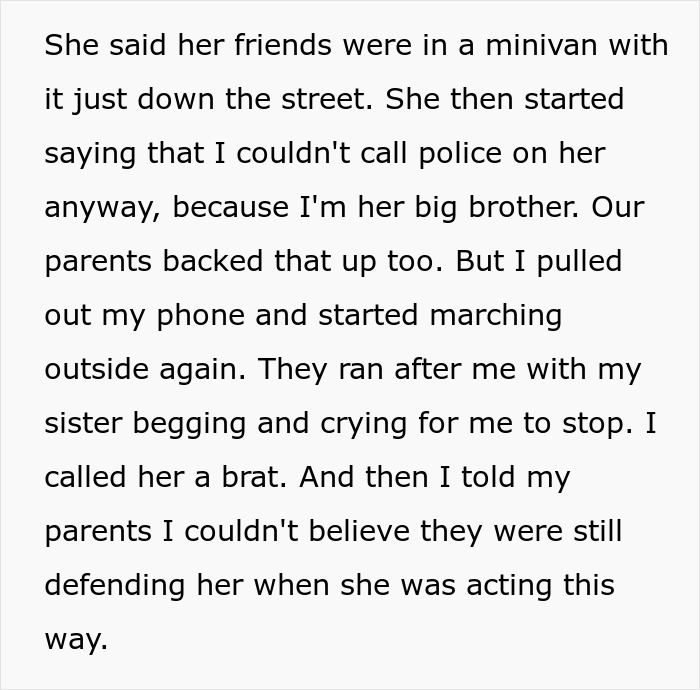
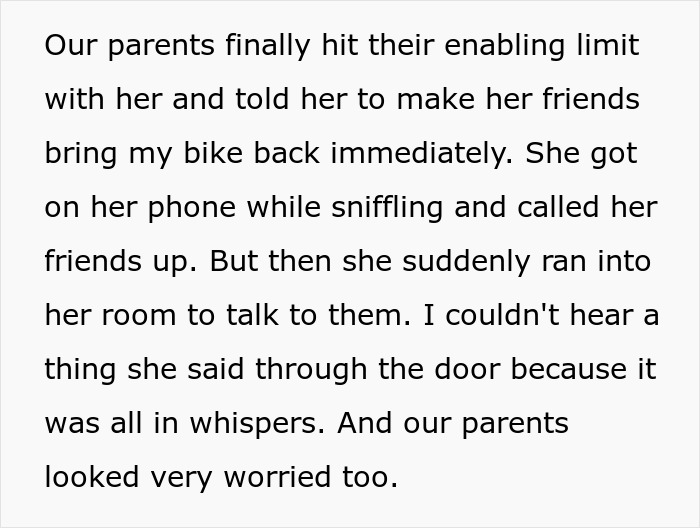

Image credits: Freepik / Freepik (not the actual photo)
Since saying sorry was like torture to her, she came up with a revenge plan — stealing and ditching her brother’s bike in the lake



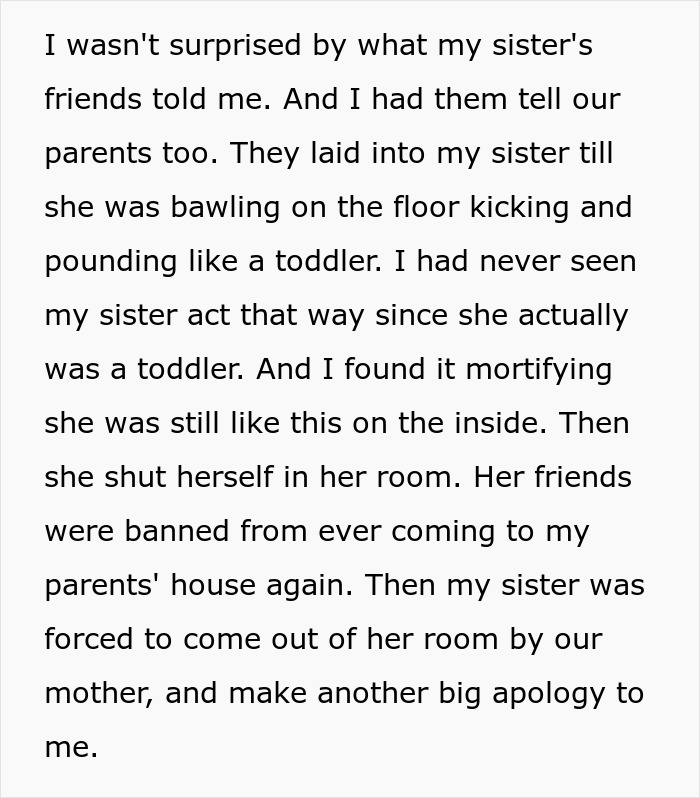

Image credits: Freepik / Freepik (not the actual photo)
When her plan was found out, she had to reverse it, which caused a lot of tension in their family, as she threw a tantrum
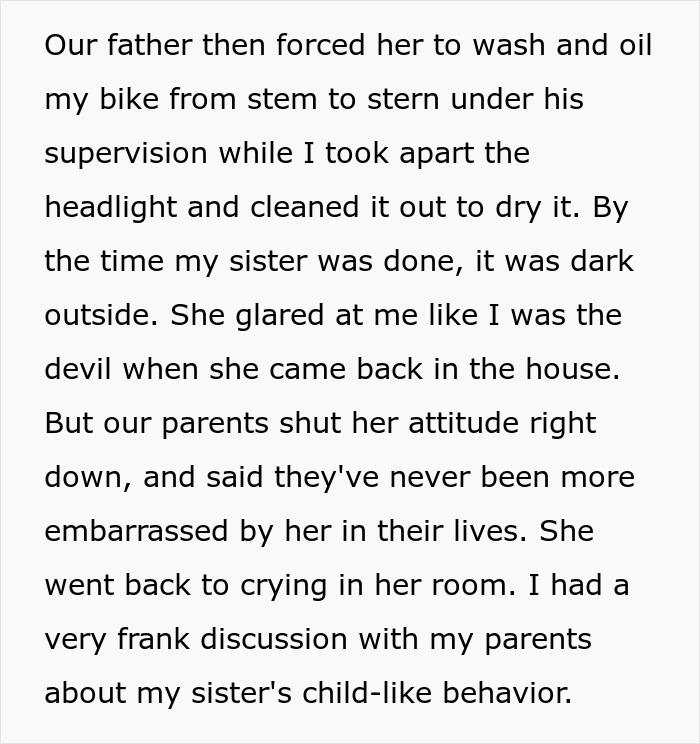
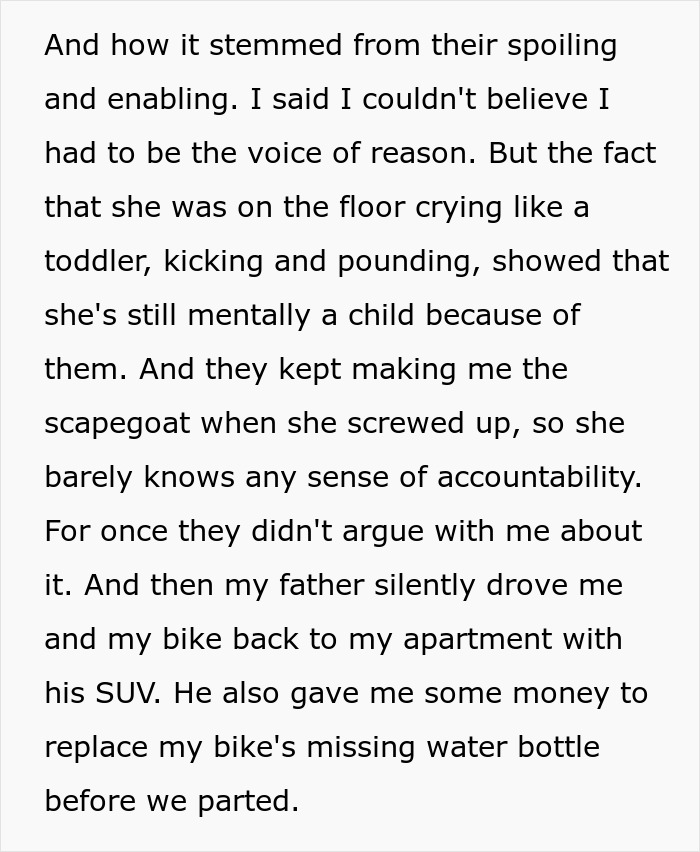

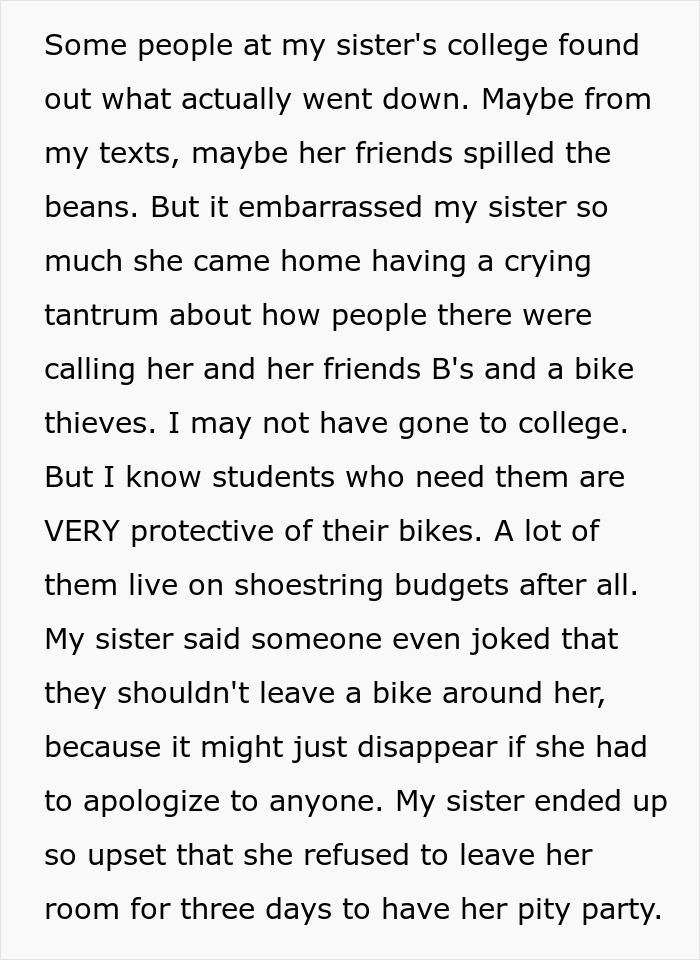

Image credits: Freepik / Freepik (not the actual photo)
Afterwards, she became a social pariah in college, as people, dubbed as untrustworthy among people who love their bikes
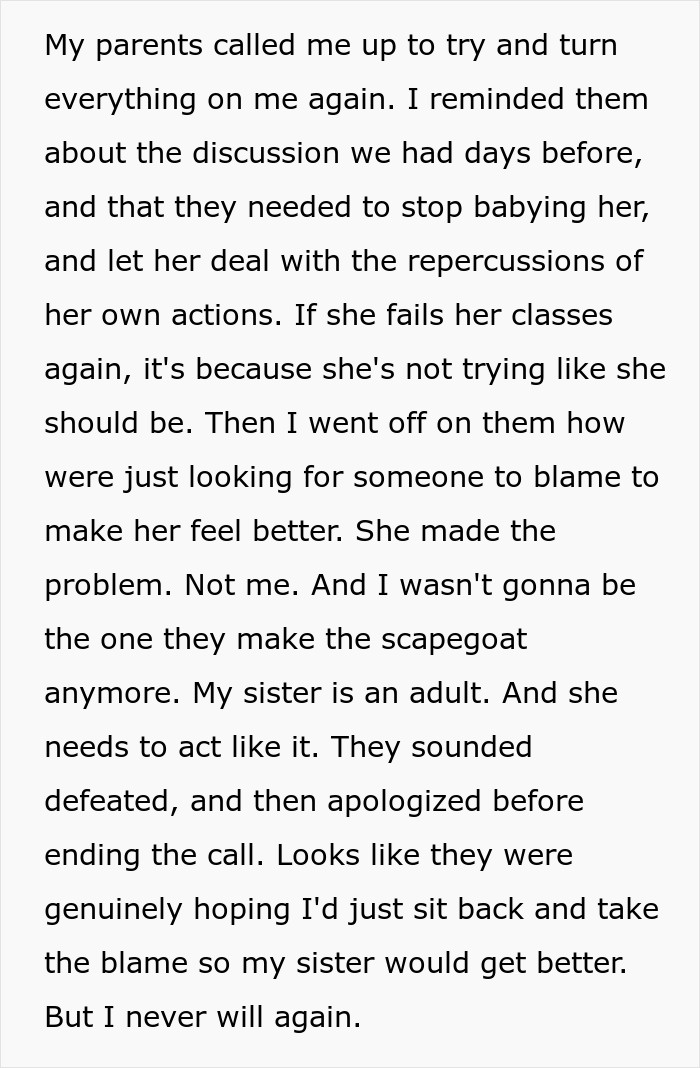
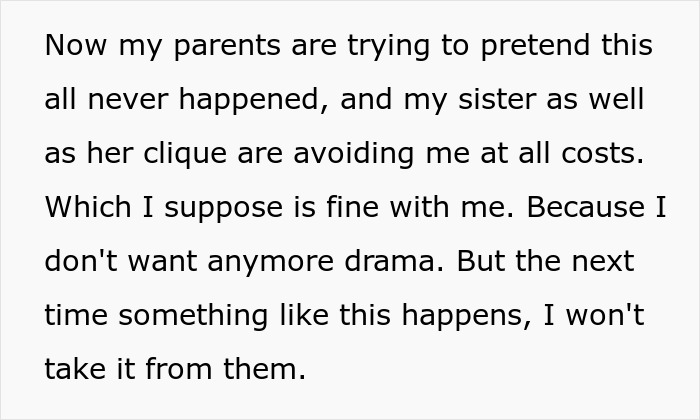

Image credits: Same-Philosopher-927

Image credits: wayhomestudio / Freepik (not the actual photo)
She also had a hard time studying and tried blaming it on her brother, but their parents, who weren’t used to saying no to her, nipped it in the bud





Image credits: Freepik / Freepik (not the actual photo)
Finally, she graduated, but then their folks made her move out, get a job and start going to therapy as a way of fixing what they messed up while raising her





Image credits: gpointstudio / Freepik (not the actual photo)
They even came up with an ironic punishment — making her use a bike instead of a car for her commute





Image credits: cottonbro studio / Pexels (not the actual photo)
Despite constant complaints about her life, the young woman started getting a little better, but still kept being mean to her brother




Image credits: Same-Philosopher-927
Still, he hoped that years of therapy would help her become a person who was easier to deal with, allowing them to put all of this behind them
Near the OP’s workplace, there’s a hospital with a cafeteria, which he often visits for lunch. When his sister learned about it, she lost her cool, saying it wasn’t normal and her parents took her side. So, her brother, the original poster, went on Reddit, where netizens assured him he wasn’t in the wrong (just like the netizens under this post).
Thinking that at least someone had his back, he hoped that the situation would fade away. Instead, relatives got involved, who supported him, while his sister and parents pouted.
A cousin even started joining him for lunch at the hospital cafeteria, as food there is not only cheaper, but healthier and more diverse as well. The argument between the siblings kept going until the parents realized that their son wasn’t wrong, apologized, and made his sister do the same, which was basically torture for her. So, she decided to retaliate.
One day, the OP came to his parents’ home on his bike, which was his main form of transportation. While they were eating, the bike was stolen and his sister was visibly happy about it. The brother threatened to go check the neighbors’ security cameras and call the police, which made her freak out and eventually confess, which stumped their parents, as they couldn’t believe she could do something like that.
She got a few of her friends to steal the bike with a minivan. Getting it back took a while, which only furthered everyone’s anxiety.
Finally, the bicycle was brought back, but it was all soaked and muddy. As you’re probably aware, exposure to water can cause serious damage to a bike. It can start rusting and make the bike not function properly. Besides oxidation, bicycle aesthetics might be damaged: once-bright paint is dulled, other parts weaken and peel off, you get the gist.
Mud isn’t good for bikes either. It can get stuck in various places, blocking tires, contaminating chain lubrication, and overall wearing out the vehicle prematurely. So, seeing his main vehicle like that wasn’t the best sight for the OP.

Image credits: David Garrison / Pexels (not the actual photo)
It turns out that the friends were ordered not only to steal the bike but also to ditch it in a nearby lake, and then they had to get it back. The truth coming out resulted in the sister having an even stronger tantrum. While it’s normal for adults to have tantrums when they can’t cope with negative emotions, the way she behaved made her look like a toddler and made the author feel uneasy.
Nevertheless, their father forced the girl to wash and do other maintenance on the bike, then drove his son home and even gave him money for the water bottle that was lost during the whole incident.
Ever since this accident, the young woman has been having a tough time at college. She became known as a bike thief in a place where there are plenty of people who love riding bikes. She even lost her friends, who helped her with the plan, as they got hazed and blamed it on her.
Passing her classes was a challenge for her, too, which she tried blaming on the depression from the bike incident. But this time, even her parents, who weren’t used to saying no to her, weren’t putting up with it. Their behavior caught up with her, resulting in their daughter’s entitlement, which is one of the most common consequences of this parenting style.
Funnily enough, as ironic punishment, instead of letting her drive a car around, the parents bought their daughter a bicycle, which she hated with all her essence.
When she finally graduated, her parents made her move out, get a job, and go to therapy. They even forced her to go to eat with them at the hospital cafeteria to show her it was completely OK and it wasn’t worth starting the argument which had left her with a ruined reputation.
Well, this story is the perfect example of what happens when the golden child grows up and becomes an unpleasant force in their family life. We just hope that therapy will do its job and that getting along with this young woman won’t be an impossible task.
Throughout this rollercoaster of a story, people online never changed their opinion that both parents and the sister were “a piece of work”


